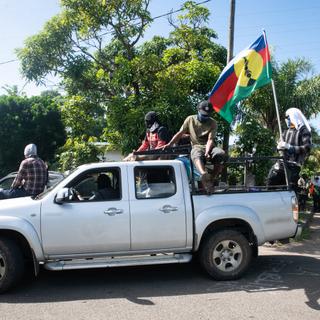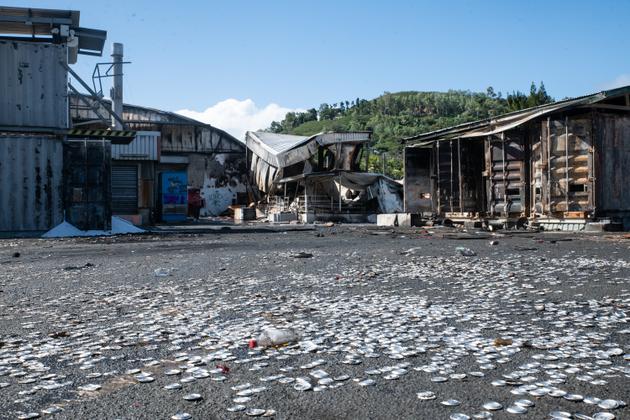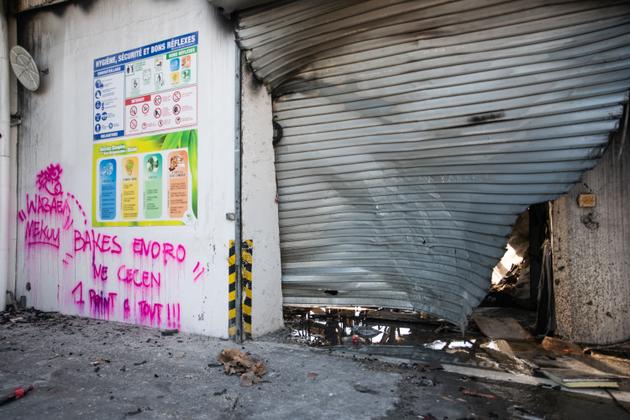


In New Caledonia, after Macron's visit, the movement continues in pro-independence areas
FeatureThe French president's visit to the archipelago failed to convince opponents of electoral reform. Pro-independence activists are calling for continued mobilization, in the wake of the death of a 48-year-old man, killed by a policeman during an altercation. The evacuation of French tourists has begun.
After 13 days of rioting in New Caledonia, President Emmanuel Macron's instructions to "restore order in the coming days" are proving difficult to apply. Security has still not been restored in the capital of the Indian Ocean territory, Nouméa, and its suburbs. For residents of mainland France stranded because of the airport's closure, the first flights aboard military aircraft took off from Nouméa's Magenta airfield on Saturday, bound for Australia and New Zealand.
On Friday, a 48-year-old man was killed at a roadblock, bringing the number of deaths since the start of the movement to seven. According to the initial investigation, a policeman fired his weapon after being attacked by rioters at a roadblock in the Koutio district, where clashes are continuing.


Politically, the French president's quick visit on Thursday seems to have settled nothing. On Saturday morning, the pro-independence Kanak and Socialist National Liberation Front (FLNKS) renewed its call for calm, while making the withdrawal of the reform of the local electoral body a prerequisite for discussion. The reform has neither been withdrawn nor suspended, and the joint session of Parliament in Versailles to adopt the constitutional amendment has not been formally postponed. "I am committed to ensuring that this reform will not be forced through," the French president said at the end of his meetings with New Caledonia's elected representatives.
In a press release, the FLNKS wrote: "The people have spoken. The FLNKS is opposed to unfreezing the electoral body as defined in the draft constitutional law. This bill must therefore be withdrawn by the French government."
"If Macron withdraws the bill tomorrow, it's all over," said Nelson (who wished to remain anonymous) and his comrades from the Montravel pro-independence roadblock, all dressed in sunglasses, balaclavas and hoods. During the night of Wednesday to Thursday, the police intervened to remove the barricade that had been blocking traffic on the RT1, the road leading out of Nouméa, which had been under the control of rioters and militants since the evening of May 13, when New Caledonia erupted in protest against the reform of the electoral system. The roles have been reversed, with the police and gendarmes now in control of the traffic circle, from where they monitor the entrance to the district, watching with binoculars.
'The unfreezing is the end of the Kanak people'
"We're ready to continue mobilizing, since the president of the Republic apparently doesn't hear us," said Yamel, a respected 50-something from Montravel. With the passing of time and the growing difficulties in this virtually cut-off neighborhood, resentment has built up in the ranks of the militants. Here, they insist that they are not responsible for the fires and looting, and refute the comparison with the riots in France in 2023. These young people see the movement as very much political: "The unfreezing [of the electoral body] means the end of the Kanak people. We're already a minority in numbers, and we'll never have another say if we let it go on," said Nelson. "And we're also doing this for our elders, who fought in their time."
You have 63.1% of this article left to read. The rest is for subscribers only.
